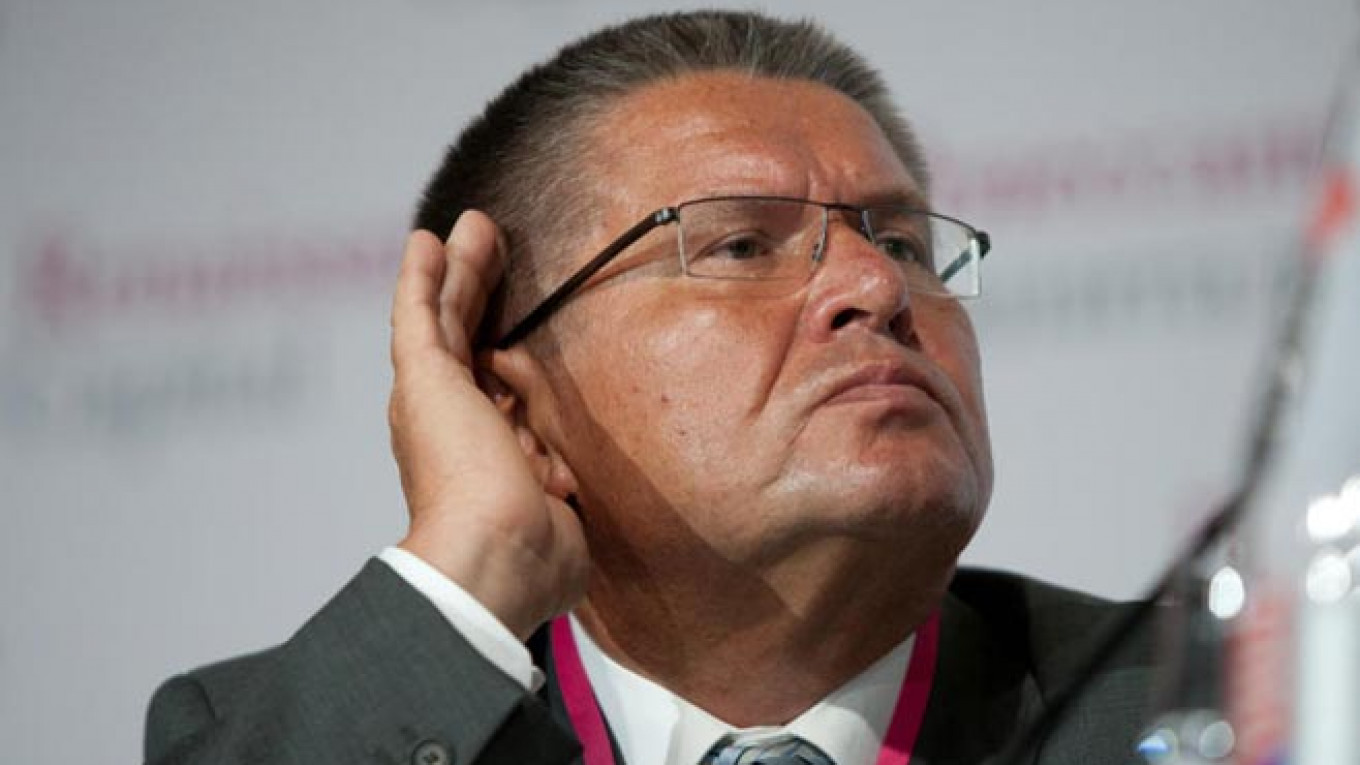Economic Development Minister Alexei Ulyukayev has admitted that private investment in the country has stalled in the wake of Russia's absorption of Crimea, but offered ways to make up for the shortfall.
A decline in investment has been dogging the economy in past months, prompting a general economic slowdown. Businesses now seem even more unsure whether they should commit money to anything, following an exchange of sanctions between Russia and the West, Ulyukayev said.
"From the point of view of investors, it means taking a pause," he said at an annual financial forum organized by the Moscow Stock Exchange. "People are not ready to make decisions about investing insofar as they assess the risks as unacceptable or assess the situation as unclear. This affects both domestic and foreign investors."
Capital flight has intensified and may reach at least $65 billion in the first quarter, Deputy Economic Development Minister Andrei Klepach said earlier this week. The number would be higher than the $63 billion in capital flight for all of 2013.
Even if the rate of the money outflow tempers, Russia could bleed a total of $100 billion this year, Ulyukayev said. That would compress the growth of economic output to a mere 0.6 percent, he said at the forum.
The government's current official forecast for economic growth this year is 2.5 percent.
Ulyukayev said the ministry had proposals to counter the downturn.
One of them is to start seven new projects to build roads and electricity grids — and pay for them out of the Federal Wellbeing Fund, a cache of money from energy exports. Ulyukayev did not say if the new plans include the two projects that the government announced previously, which are building another beltway in the Moscow region, farther out than the Moscow Ring Road, and upgrading the Trans-Siberian Railroad, drawing a cumulative 300 billion rubles ($8.3 billon) from the fund.
But RBK Daily reported earlier this month that the seven projects would be additional. The newspaper said the funds would go toward building a railroad to the Elegest coal deposit in Siberia, a nuclear power station in Finland and developing Moscow's airports, among other projects.
The government has decided it may spend up to 40 percent of the 3 trillion rubles now sitting in the wellbeing fund to improve infrastructure.
As another measure to backstop the economy, Ulyukayev touted preferential purchases of Russian-made goods for government contracts.
The Industry and Trade Ministry, for example, is hammering out a regulation to restrict foreign supplies of medical equipment, according to Deputy Minister Sergei Tsyb. State purchases account for 85 percent of the market.
Ulyukayev also proposed focusing on expanding trade with Asia, which reached $150 billion last year, or a third of Russia's trade with the West.
In another move, the government could urge state-controlled companies to move forward some of their investment plans. The companies, with whom the government is in contact about the idea, include Gazprom, Russian Railways and Russian Grids, he said.
Former Finance Minister Alexei Kudrin said at the forum that the further economic slowdown was the price for the country's independent foreign policy, and that people were so far willing to accept the cost.
"We are paying hundreds of billions of dollars for this, hundreds of billions, and we will see lower gross domestic product growth, investment and revenues," Kudrin said.
Contact the author at medetsky@imedia.ru
A Message from The Moscow Times:
Dear readers,
We are facing unprecedented challenges. Russia's Prosecutor General's Office has designated The Moscow Times as an "undesirable" organization, criminalizing our work and putting our staff at risk of prosecution. This follows our earlier unjust labeling as a "foreign agent."
These actions are direct attempts to silence independent journalism in Russia. The authorities claim our work "discredits the decisions of the Russian leadership." We see things differently: we strive to provide accurate, unbiased reporting on Russia.
We, the journalists of The Moscow Times, refuse to be silenced. But to continue our work, we need your help.
Your support, no matter how small, makes a world of difference. If you can, please support us monthly starting from just $2. It's quick to set up, and every contribution makes a significant impact.
By supporting The Moscow Times, you're defending open, independent journalism in the face of repression. Thank you for standing with us.
Remind me later.






